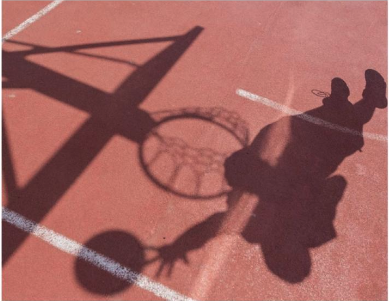A few days ago, we held a basketball game between the students and professors at the university where I teach. To say we held it is just a figure of speech. Or rather, it’s something only those of us who won the game say, because, against all odds, we fifty-something, rusty professors beat the students. The final score was twenty to ten.
We still wonder among ourselves how we won. In reference to the modest Zapote court that saw the birth of the sporting legend, we have christened that game the Zapotazo. At the end, while we were changing, a student came up to me and said, “Professor, you haven’t won anything yet. The winner will be whoever wins two out of three games.”
So here we are training on Friday nights and trying to understand what we did right during the Zapotazo so we can repeat it in the next game. I suspect that the key lies in the past of the fifty-somethings. Oscar Wilde claimed, through one of his characters, that experience is the name we give to our mistakes. I suppose that experience can also be the reason for some of our successes.
Memories from the eighties
The coordinates of my adolescence are marked by basketball. My first contact with Africa came thanks to Manute Bol: a giant who played in the NBA. I owe basketball the loves and fears of that time, and even my distancing myself from violence. In my personal dictionary, the bad guys weren’t the gang members in the neighborhood where I grew up, but the Detroit Pistons.
During high school, I played basketball at Salesiano Don Bosco. Some of my teammates imitated Michael Jordan or Magic Johnson, but I wanted to be Jorge Arias Tuk. The star player on the Liceo de Costa Rica’s first team had qualities that allowed him to play any position. There was also something magnetic about the sound of his name. A primitive remnant that resonated every time we shouted, from the stands, “iTuk, Tuk, Tuk!”
In my memory, that is the anthem of the golden age of Costa Rican basketball. A time when we spent hours discussing plays on the board with the players’ positions, the route of the passes, and possible strategies. Some had names that seemed to come straight out of wrestling, such as The Double Boston or The Hook and the Ladder. In any case, the plays on the board taught us to strengthen bonds, create favorable scenarios, and succeed in high-pressure situations.
Aging better
During my return to basketball after decades of inactivity and absence, I returned to the court with less skill but a greater ability to recognize the right moment to pass and shoot. At least that’s what I thought every time I had to crouch down to catch my breath, which happened every three minutes.
That would be a good title for the chronicle of my new days as an old basketball player: in search of lost air. Although the important thing here is not the air, but the experience that allowed me to measure times and distances, despite myopia that prevents me from focusing more than two meters away.
We reach physical peak at age thirty, and from that point on, our vision, hearing, strength, and endurance decline. Then, the brain steps in and cleverly manages our resources. This happened to Michael Jordan toward the end of his career. When he could no longer execute the amazing jump that had made him a legend, he introduced a jump shot into his game that allowed him to stay in the air.
In his book In Praise of Experience (2019), Carl Honoré reminds us that more people are aging better and in a more active way. “They sail around the world in their forties; they go back to school in their fifties; they start new businesses or families in their seventies; they design or participate in political campaigns in their eighties; they fall in love in their nineties and create works of art in their hundreds,” Honoré points out.
I often think about how privileged we are to live in an era where we can design and experience a better old age. On the court, I find that my ability to anticipate the actions of other players increases as my reflexes slow down, and that my body’s sluggishness is accompanied by greater mental agility and heightened creativity. At this stage of the game, that transformation undoubtedly represents the greatest victory of all.

